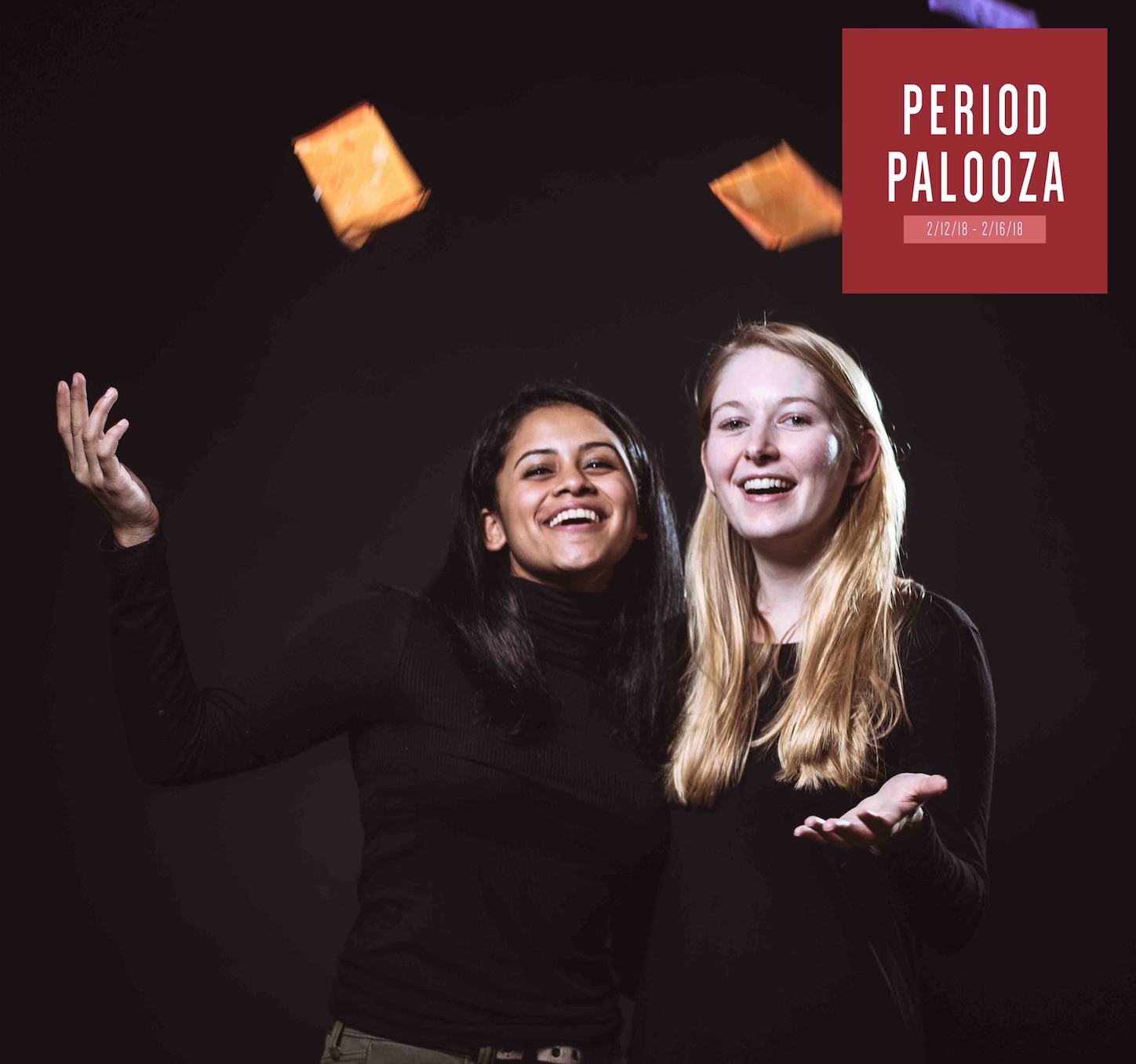Katherine Fleming:
I first began to realize the connection between periods and social justice when I was volunteering at a homeless shelter in Boston. I was instructed that when guests came to the counter to ask for menstrual products, I could only give them four pads or four tampons at a time. I was shocked. That was maybe enough for a single day of a period. The thought dogged me: Why couldn’t guests have as many menstrual products as they needed, whenever they needed them?
Since then, the question of how we can ensure safe, affordable or free and equitable access to menstrual products for all people who get periods, whether in shelters, prisons, workplaces, or schools, has been constantly on my mind. I am so inspired by the growing and vibrant movement while working for what activist Jennifer Weiss-Wolf has aptly dubbed “menstrual equity.”
But this is not a conversation or movement that only exists outside the proverbial Orange Bubble. College campuses like ours are at the heart of this fight. For over a year now, I have been part of the campaign to get Princeton to provide free pads and tampons in campus bathrooms. It is well past time for us to move forward.
Pads and tampons are not luxuries. They are necessities, just like soap, toilet paper, and paper towels. Who hasn’t been caught in the middle of a long day of classes and meetings, without a tampon, far from your room, crossing your fingers you’ll find someone else who just might happen to have an extra tampon in their bag that day? I still remember this moment my freshman year when I was sitting in a remarkable, long-anticipated HUM lecture. I was unable to focus on what the professor was saying because I felt my period start and had no idea where I would find a tampon before my next class. We have so many important things to think about. Worrying about finding a tampon should NOT be one of them.
This is why Preeti Iyer and I organized PERIODPALOOZA – an initiative to work towards menstrual equity on Princeton’s campus and beyond. We call on Princeton University to show that it truly values the basic wellbeing and comfort of students by providing these basic, necessary items, without charge, in campus bathrooms.
Preeti Iyer:
In 8th grade, one day while having severe cramps, I briefly exposed my annoyance and discomfort to a male friend who replied that I was being disgusting. I was shocked. It made me realize how until that point, I had never really talked about my period outside of my close circles. I guess I felt like I couldn’t.
It’s basic biology.
Why, while we place so much meaning on life and the complexities of the human body, is getting your period still shameful? Why is there a persisting taboo that inhibits women from having the security of dignity, health, and comfort?
Why are menstrual products taxed as luxury items in 37 states, making basic hygiene and comfort even more inaccessible for the millions who can’t afford to pay hundreds of dollars a year for tampons, pads, and cramp controls. Why until a few months ago, were federal prisons not even required to make menstrual products available?
Why are women seemingly punished for being women?
Why at Princeton University and most colleges across the Unites States, institutions that have core ideals of equity and support, are menstrual products not publicly available to all students, when a portion of students cannot afford these without undue financial stress and the lack of these items impacts academics and student life?
It’s basic biology. It’s basic social justice.
I am proud to have lead PERIODPALOOZA alongside Katherine Fleming – an initiative to work towards menstrual equity on Princeton’s campus and beyond. It’s well past time for this reformation.
PERIODPALOOZA’s goal was to bring discussion and action to the menstrual equity debate at Princeton and beyond. In order to do we brought some of the biggest names in this action space, from leading Silicon Valley Biotech startups to international development groups to media icons for discussions. We launched different social media campaigns to engage the campus in existing efforts to bring menstrual products to campus-wide restrooms. Overall the week was met with overwhelming support and also offered the chance for many unprecedented conversations. I had many friends come up to me during the week and ask me what exactly menstrual equity meant, or how it needed to be addressed. The week was a seed to broaden peoples’ understanding of the issue and scope for the dialogue surrounding menstrual equity. It forced people to have conversations about menstruation that they had never had before. We were able to get more support for our on-campus policy efforts, raise awareness. We also partnered with a homeless shelter in Trenton to provide resources for over 350 menstrual packages for women.
Moving forward, we hope to make this an annual event and continue engaging the campus in an active dialogue regarding menstrual equity.

Leave a Reply